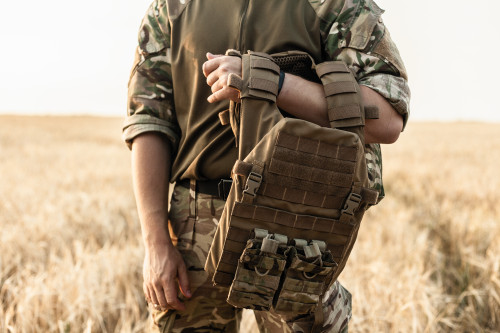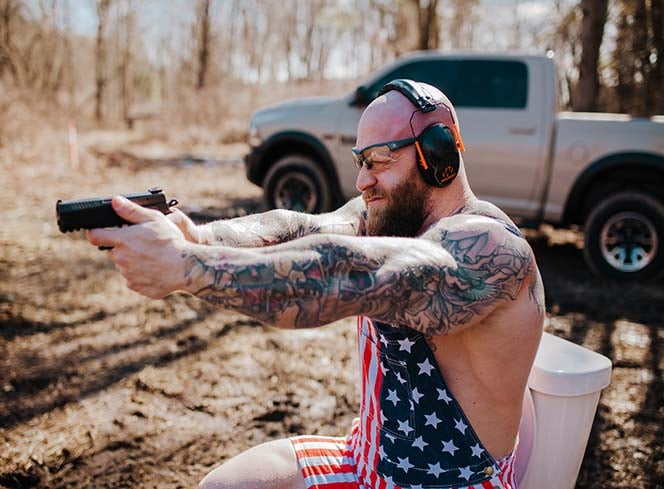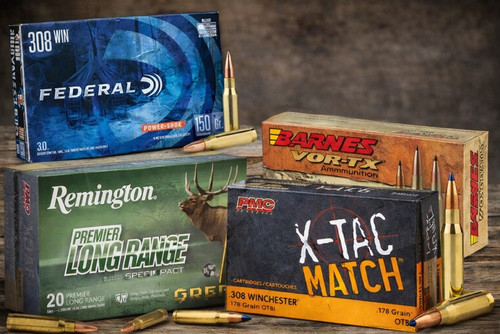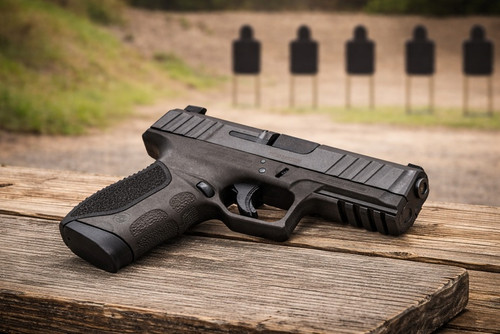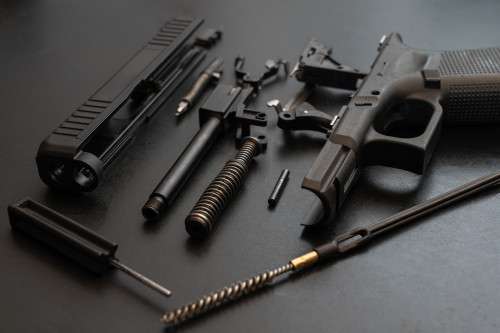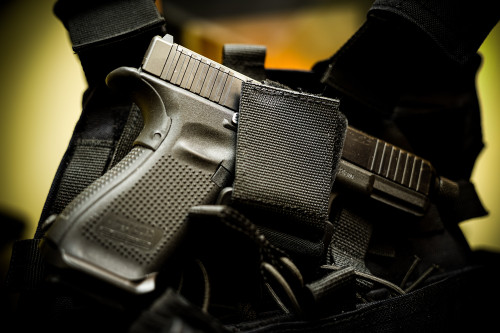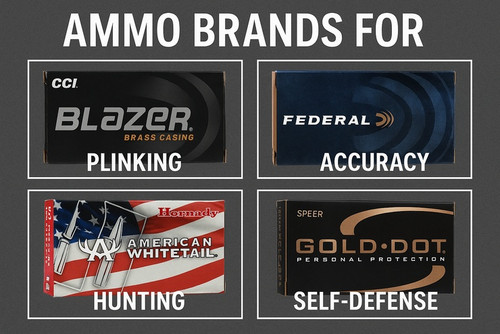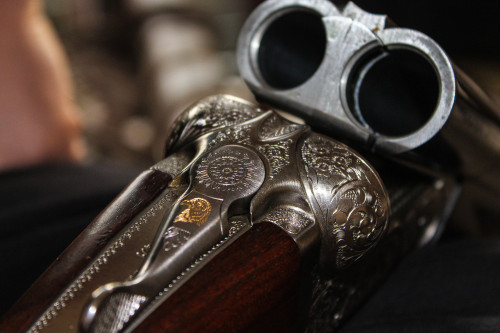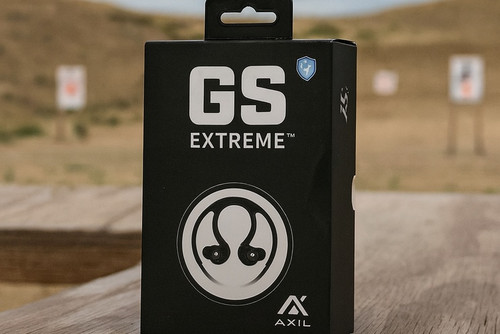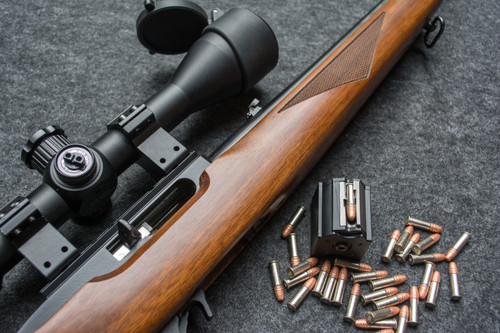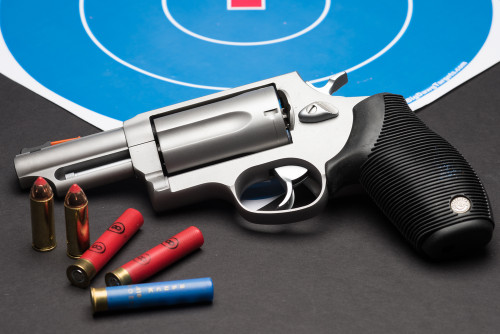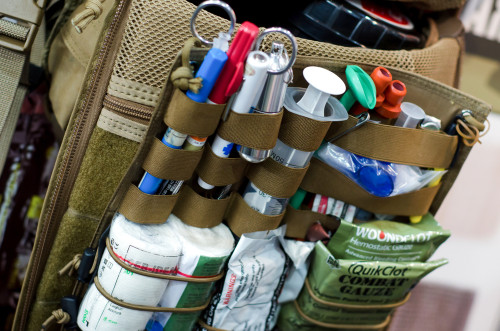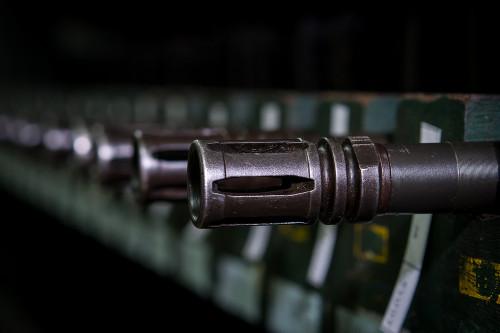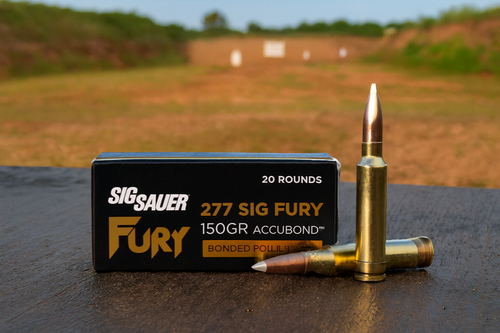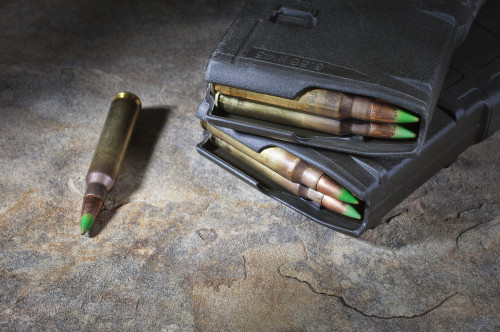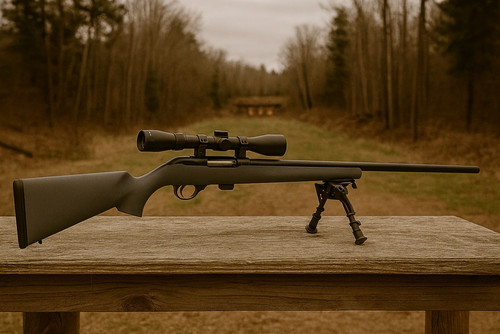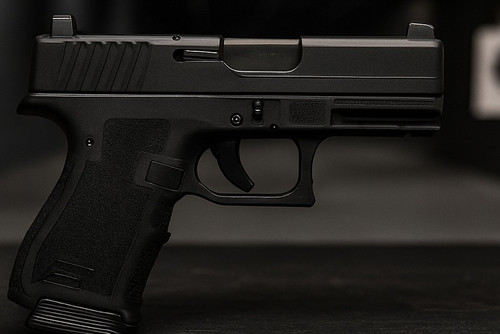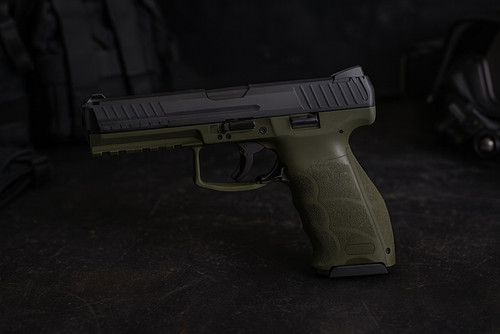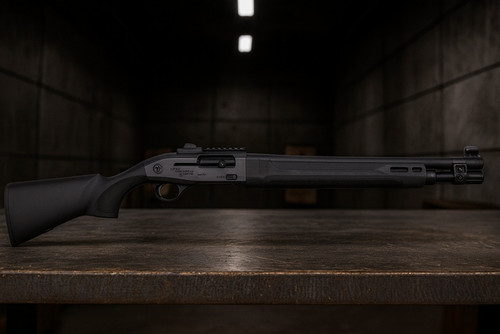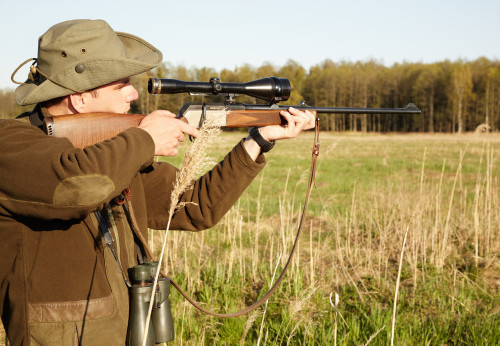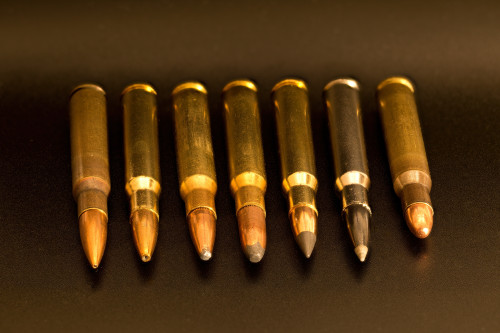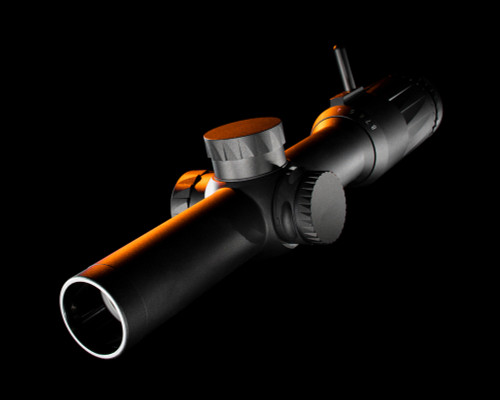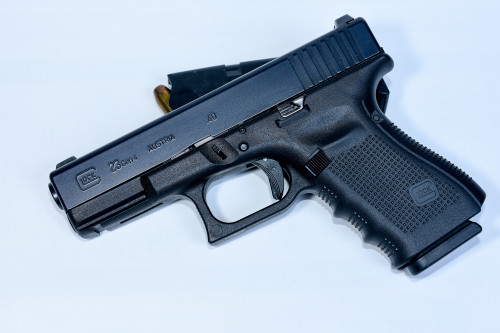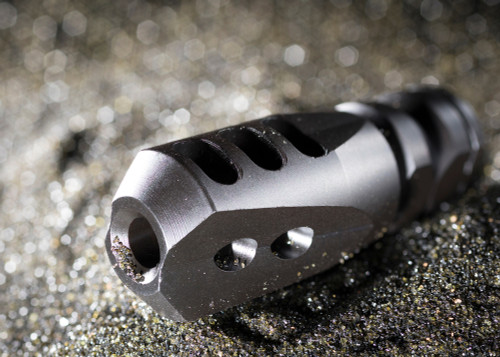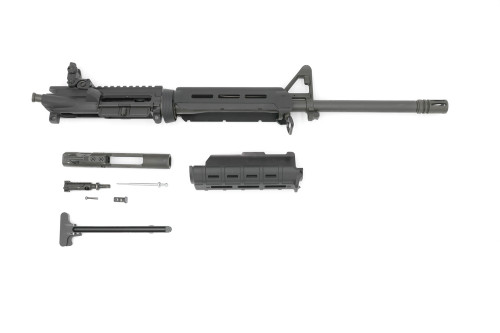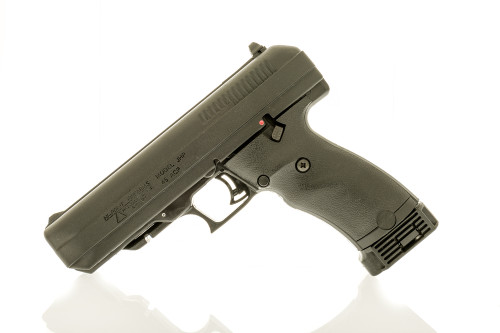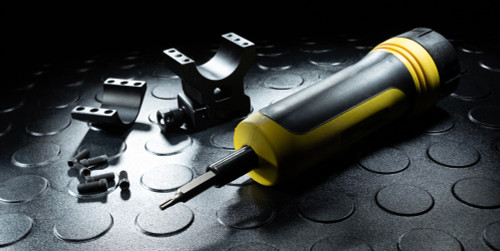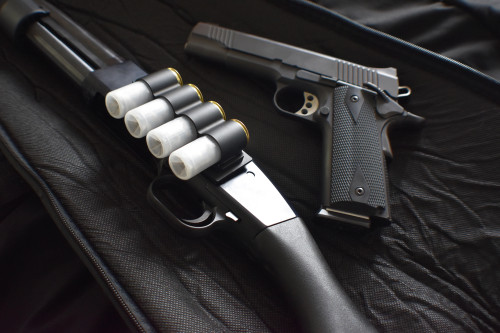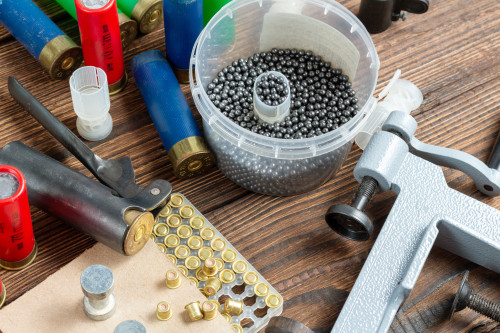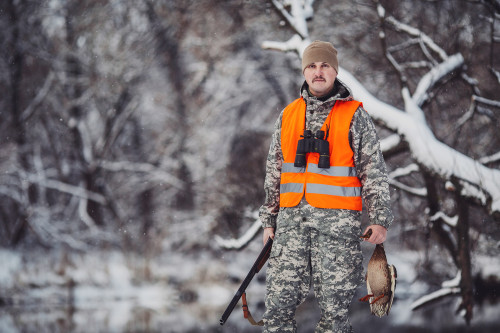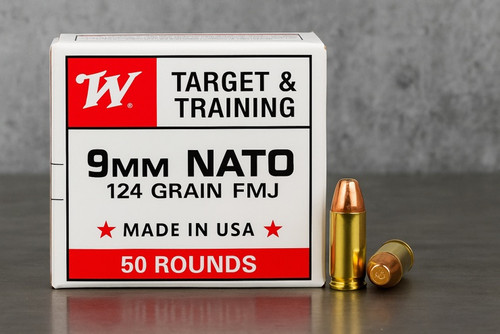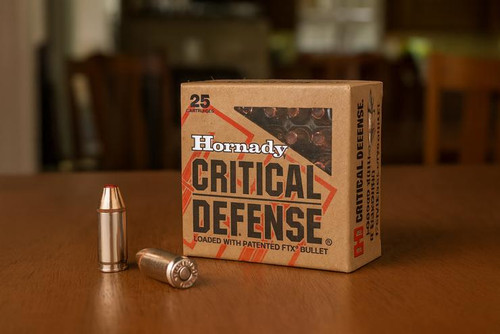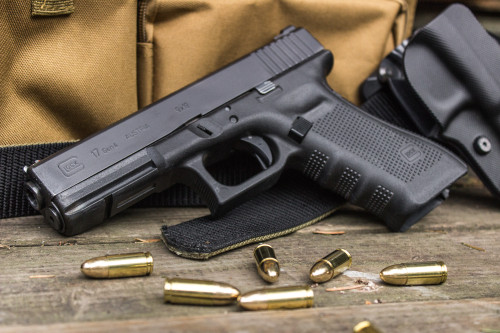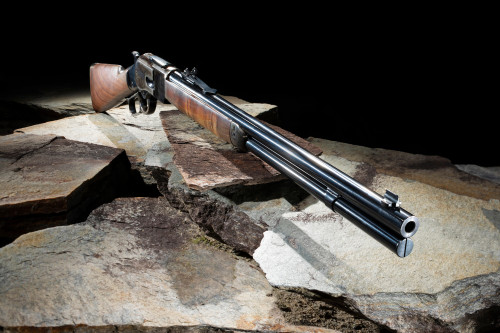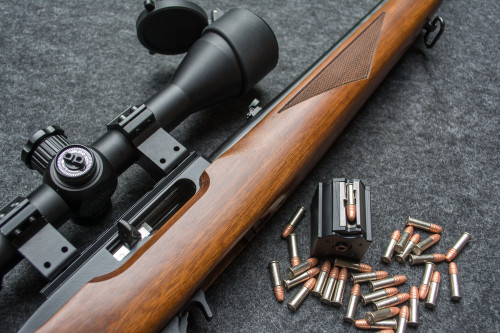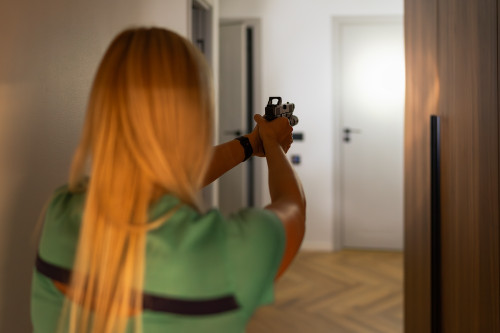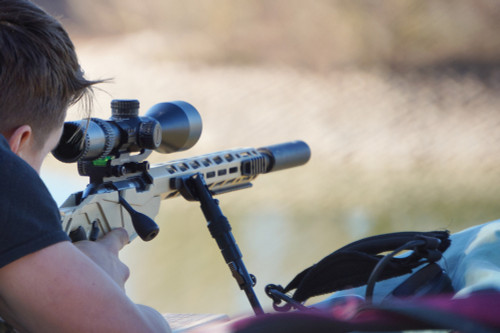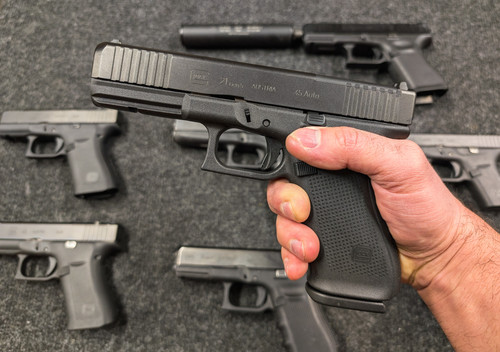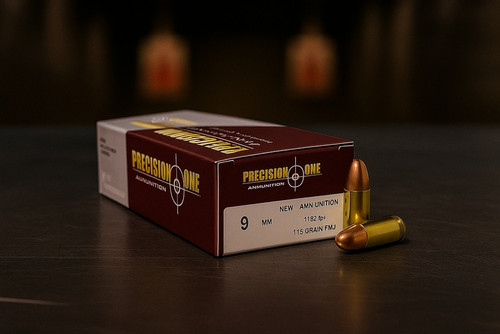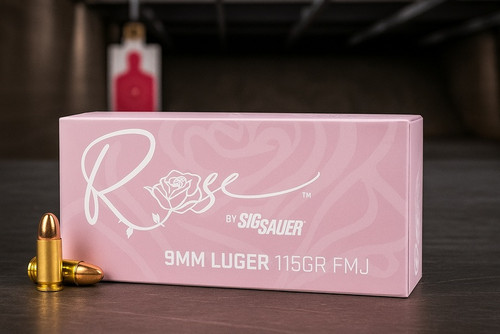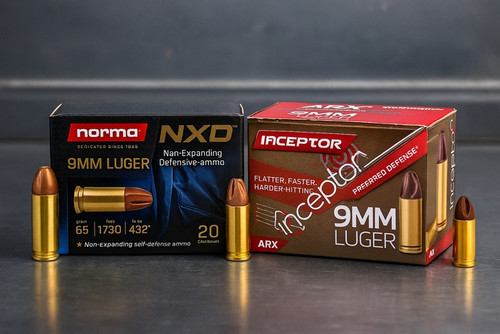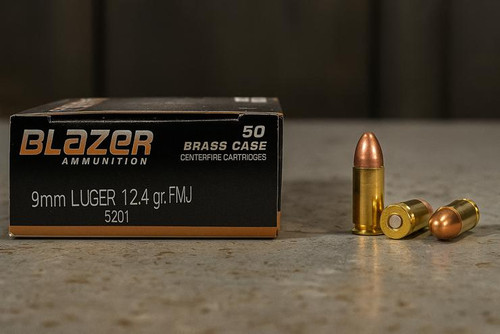Since the dawn of time, humans have been searching for ways to protect our fragile bodies. As weapons evolved from simple stones to powerful firearms, those who develop armor technology have raced to keep up. Fortunately, modern science offers highly effective body armor solutions to keep us alive when faced with modern threats.
Whether for work, hunting, or home defense, body armor can help keep you safe — and it’s not just for military and law enforcement. Civilian body armor is an extra layer of protection you’ll be glad to have in case:
- You accidentally walk through a dangerous part of town
- Your hunting buddy forgets about gun safety
- You take a job as a bouncer at a club
- A craigslist deal goes horribly wrong
- You end up in a mass shooting
- Sh*t hits the fan
- The neighbor runs over a rock with his lawnmower right when you step outside
However, it’s essential to understand both the strengths and the limitations of these systems before you buy. As cool as it seems, a full-body Kevlar samurai suit probably isn’t the most practical investment. In this guide, we’ll explain the basics of body armor, some tips to consider when shopping, and our recommendations for the best body armor on the market for civilians.
What Is Civilian Body Armor?
Body armor is a wearable system designed to reduce the penetration of bullets, explosive fragments, and other projectiles. Its fundamental principle is to put a strong material between danger and your vital organs while retaining as much mobility as possible.
Modern body armor can include ultra-strong ballistic fabric, hard plates, stab-resistant materials, or a combination of all three. Which system you need will depend on your specific circumstances and the threats you’ll face. There are no one-size-fits-all solutions, and you may need to try several products to find the equipment that works best for you.
While modern armor is extremely effective, it still has limits. Hollywood has created a perception that body armor somehow makes you superhuman or bulletproof, but this is not the case. Think of body armor as more like a seatbelt than an invincibility shield — it doesn’t make you immune to all harm, but it can save your life.
Depending on the range and caliber of the weapon threatening you, armor is usually the difference between a funeral and a trip to the hospital with serious contusions. If you get shot in the chest while wearing body armor, you’ll probably live to talk about it, but it will still feel like you got hit by a truck. The impact might knock you unconscious, break a few ribs, and even cause some pretty bad internal bleeding.
The key value of body armor is peace of mind when you could be a direct or indirect target of a credible threat. It’s also valuable protection when you’re doing something really, really stupid (which we don’t recommend, of course) — but just in case, let’s take a closer look at how body armor works.
How Does Body Armor Work?
Body armor works by absorbing a projectile’s concentrated energy and spreading it out over a wider area to reduce penetration. The higher and more concentrated the energy, the stronger the armor needs to be.
Modern body armor (bulletproof/ballistic vests, plate carriers, etc.) are made from multiple layers of ultra-strong fabric, such as Kevlar or other aramid fibers. When tightly woven and overlapped, these materials can effectively distribute a bullet’s impact across a wide area, reducing or preventing penetration — and saving lives.
In addition to ballistic fabrics, body armor can include steel or ceramic plates, which are much stronger and capable of stopping higher-energy rounds. The tradeoff is that these plates are heavy and reduce mobility.
Body armor can also include stab- and slash-resistant materials to reduce penetration from (comparatively) low-energy attacks, such as knives or stabbing weapons. While bullets are much faster than knives, knives are sharper and can more easily fit between fibers, meaning different materials are required to defend against these threats.
Types of Body Armor
A wide variety of body armor is available, each type designed to deter a specific threat or to be used under specific circumstances. While not all of these are meant for civilians, here are some of the main types of body armor you might encounter as you shop:
- Ballistic vest: This is a soft-fabric bulletproof vest generally designed to stop handgun rounds. While these vests are ineffective against large-caliber rifles and stabbing weapons, they are lightweight and comfortable, allowing for excellent mobility.
- Ballistic vest with plates: These vests are a mix of soft and hard armor, so they provide more protection against both small- and large-caliber rounds. Of course, the plates are heavier, which decreases comfort and limits mobility.
- Plate carrier: To maximize mobility, these systems avoid soft armor altogether and just provide a holder for front and back hard-armor plates. These are best for tactical or hunting scenarios where the main threat is high-caliber weapons.
- Stab-proof vests: These vests are specifically designed to deal with spiked and edged weapons but may not resist bullets. Stab-proof inserts can be added to other systems.
- Bullet-resistant clothing: If you want to be particularly discreet, ballistic hoodies, jackets, pants, and other garments are available. The idea is to provide some protection while maintaining a low profile.
- Bullet-resistant accessories: Armored accessories, such as backpacks and briefcases, are particularly useful in a mass-shooting scenario, which can happen just about anywhere (schools, malls, public streets, etc.). A bulletproof backpack or hoodie still serves a purpose while also providing protection against threats, increasing the likelihood you’ll actually wear it on a regular basis.
Body Armor Protection Levels
Body armor also varies in the threats it can defend against. The following are standardized protection levels as certified by the National Institute of Justice (NIJ), a division of the U.S. Department of Justice.
- Level IIA: This is the least effective but most concealable armor. If you need some protection against small-caliber rounds, IIA armor is better than nothing. These vests can protect against rounds up to .40 caliber.
- Level II: This armor provides a good balance of weight and protection against rounds up to .357.
- Level IIIA: As the most commonly recommended level of protection, these vests protect against nearly all handgun rounds, including .44 Magnum and most shotgun rounds.
- Level III: This armor level is designed for combat, providing protection against high-energy rifle calibers, such as 7.62.
- Level III+: This armor level is not technically an official rating. Manufacturers developed III+ armor to indicate additional protection against 5.56 rounds.
- Level IV: This is the highest protection level available, protecting wearers from armor-piercing rounds.
Civilian Body Armor Buying Considerations
Choosing body armor as a civilian is not as simple as just buying the “best” one. You’ll need the right armor for your specific circumstances and the most likely threat. While there’s no way to prepare for every situation, think about it this way: the armor requirements of a bodyguard, police officer, hunter, nightclub doorman, and home defender are all vastly different.
Generally, choosing armor is about measuring the tradeoffs between certain characteristics. Here are a few important factors to consider when buying body armor:
- Type of Threat: As the most important factor, you should consider whether you might be facing bullets, edged weapons, explosives, or a combination of these. You need to be sure your body armor covers at least what you are most likely to encounter.
- Protection Level: Review the official protection levels above and be sure whatever armor you choose is officially rated with a protection level that matches the threats you may realistically face. However, keep in mind that protection might limit mobility, which may decrease your ability to respond effectively in a violent encounter.
- Weight: The more protection you have, the heavier your armor will be, which can limit comfort and mobility. If you plan on wearing this armor during strenuous activity or exercise (even walking long distances), weight is a crucial consideration.
- Comfort: Will you be wearing the vest for 12-hour shifts or only putting it on for five minutes to confront a home intruder? In addition to weight, your armor’s design, materials, and adjustability also play a key role in comfort. If possible, try on some options before you buy.
- Mobility: While wearing body armor, driving a vehicle or standing at a door will be easier than running, climbing, or fighting. The goal is not to be invincible but to survive. Sometimes, mobility is more important than any other factor — you don’t want to be bogged down by clunky, heavy armor when you need to leap into action.
- Concealability: For home defense or hunting, concealability isn’t important — it’s your home for God’s sake. But if you’re wearing a bulletproof vest around the mall or standing at the door of a nightclub, it might be important to have one that isn’t so obvious. Also, if you’re wearing this on a regular basis, you want it to feel natural with your everyday outfits (and not draw too much attention).
- Cost: Armor isn’t cheap, so it’s important to carefully assess your situation to be sure you need it. By spending more, you can sometimes achieve higher levels of protection at a lower weight, delivering better comfort and mobility without sacrificing security.
- Warranty: Buying a bulletproof vest is like buying a parachute: you won’t know it’s failed until it’s too late. However, good warranties will guarantee against manufacturing defects and issues with material quality or durability. If you notice a problem with your vest, you can easily get it replaced before it turns into a risk factor.
- Legality: Body armor is currently legal in 49 states, but there are limitations. For example, you can’t own armor if you’re a convicted felon, and for some reason, you can’t buy armor online in Connecticut. New York is the one state where average civilians cannot purchase or own body armor. However, if you work in an approved profession (e.g. law enforcement, armored car guards, security guards, firefighters, EMTs, paramedics) — there are exceptions that allow you to use body armor. Check out your local laws to be sure you’re compliant.
Our Picks for the Best Civilian Body Armor
To help you choose the right options for you, here’s our list of the best civilian body armor pieces you can find at reasonable prices:

Testudo™ Gen 2 Plate Carrier
$189.99
Testudo™
Prices accurate at time of writing
Best Plate Carrier: Armored Republic Testudo Gen 2
The Testudo Gen 2 is a top choice for protection and versatility. It’s a fully adjustable plate carrier designed for high-mobility tactical scenarios.
It features side pouches for additional protection, as well as kangaroo and admin pouches with a PALS webbing system for modular attachments. The flexibility allows you to carry all the necessary equipment without sacrificing mobility.
Comfort is perhaps the best feature of the Testudo. The adjustable cummerbund offers a secure fit for various body types, while the comfortable padding provides additional support during extended wear.
Of course, this is just the vest. In order for this to function as body armor, you will need to purchase a plate to insert.
Here are some stats on the Tetsudo Gen 2:
- Armor pocket: Supports 10x12” & 11x14” plates (sold separately)
- Material: 500D Nylon
- Color: Coyote, Olive Drab, or Multicam
- Weight: 3.6 lbs
- Size: M to 3XL

A2 - Alloy Body Armor
$166.80
Armored Republic
Prices accurate at time of writing
Best Armor Plate: A2 Allow Level III+ Plate (10" x 12")
The A2 Alloy Level III+ Plate gives you top protection with a lightweight design, helping you stay mobile in highly active situations. Rated Level III+ by Armored Republic, this plate is built to handle many common threats. It uses a special steel alloy that lets it take multiple hits without losing strength. The built-in FragLock™ Coating helps catch bullet fragments, reducing the risk of injuries from flying debris.
What makes the A2 Alloy Level III+ Plate stand out is its mix of strength and ease of use. At just 6.5 lbs, it offers high protection without the extra bulk. But the 0.26-inch thickness still provides better protection than standard polyethylene plates. Plus, the curved design makes it comfortable to wear, giving even protection across the whole surface of the plate.
Here are some specs:
- Size/Dimensions: 10" x 12" or 11" x 14”
- Material: Ballistic steel alloy blend (650 hardness on the Brinell scale).
- Protection Level: III+ — 5.56x45 M193, 5.56x45 M855/SS109 at speeds up to 3,000 FPS, as well as 7.62x39 and 7.62x51 M80 NATO Ball rounds at 2,850 FPS.
- Weight: 6.5 lbs
- Shelf Life: 20 years (no maintenance required)
Best Concealable Body Armor: SafeGuard CoolMAX Covert Vest
The SafeGuard CoolMAX Covert Vest is ideal for those who need protection without being noticed — especially in hot environments. Designed to be worn under clothing, this vest offers a solid mix of ballistic and stab protection, making it perfect for security personnel and bodyguards who need to stay discreet.
The vest's adjustable straps make sure you have a snug fit and improve comfort for long periods of wear. Plus, the ventilated CoolMAX mesh lining helps keep you cool. Overall, the lightweight design offers excellent concealability for just about any scenario.
Here are the specs:
- Ballistic Protection: Level II
- Stab Protection: Up to 24 joules
- Materials: Aramid, poly-cotton
- Color: Black
- Size Range: S to 4XL
Best Soft Body Armor: Point Blank Vision Series
The Point Blank Vision Series is a top choice for soft body armor for civilians. It’s already widely used by law enforcement for its exceptional concealability and lightweight durability.
Made from Dyneema force multiplier material, this soft armor offers NIJ Level IIIA protection, providing reliable defense without sacrificing comfort. The easy shoulder adjustment and elastic straps make it flexible and adaptable for various body types as well — with multiple configurations available for male, female, and unisex wear. It also features moisture-wicking and temperature-regulating properties.
BONUS: The optional Thorshield® material provides electroshock protection (in case you’re worried about being tased).
Here are some specs:
- Protection Level: NIJ Level IIIA
- Materials: Dyneema force multiplier material
- Colors: Black, White, Navy, Tan
Best Maximum Protection: Safe Life Defense Tactical Enhanced Multi-Threat Vest
The Tactical Enhanced Multi-Threat Vest from Safe Life Defense is designed for those who need the highest level of protection. It's the ultimate armor solution for the worst situations, making it a great choice for home defense or security work in dangerous areas.
This vest offers Level IIIA+ ballistic protection and can withstand up to 36 joules of stab force. Made from durable para-aramid materials, it provides reliable defense against bullets, strikes, and slashes.
It also features expanded pockets for optional Level IV protection, front and back MOLLE webbing for gear attachment, and a rear drag/rescue handle for emergencies. The six-point adjustable straps ensure a secure and comfortable fit, while the cooling mesh liner keeps you from getting too hot during long periods of wear.
Here are the specs you need to know:
- Ballistic Protection: Level IIIA+
- Stab Protection: Up to 36 joules
- Materials: Para-aramid
- Colors: Black, tan, green, blue
- Size Range: 4XS to 7XL
Best Armored Backpack: Armored Republic Phoenix
The Armored Republic Phoenix backpack provides discreet protection while also functioning as a high-quality backpack for everyday use. It's designed to keep you and your loved ones safe, offering crucial defense in worst-case scenarios. With NIJ Level IIIA ballistic protection sewn in, the Phoenix stops bullets used in 95% of gun-related homicides, making it a dependable choice for personal security.
Made from strong materials like DuPont Kevlar and Honeywell Spectra Shield, this backpack is lightweight at just 3 lbs, so you can carry it comfortably to work, school, or anywhere else body armor is legal. It features a fully functional design with padded straps and a laptop sleeve that doubles as an optional armor upgrade pocket. Available in black, blue, gray, and mauve, the Phoenix combines style and safety in one discreet package.
Here are the specs:
- Ballistic Protection: Level IIIA
- Materials: DuPont Kevlar, Honeywell Spectra Shield, 1680D Cordura Hypalon
- Weight: 3 lbs
- Shelf Life: 5 years
- Colors: Black, blue, gray, mauve
Conclusion
Now that you have a better idea of how body armor works, you’ll know what to look for if you are thinking of buying your own body armor. Bulletproof vests and plate carriers aren’t cheap, so remember to carefully consider your situation and potential threats before buying. Above all, don’t compromise on quality — your life could actually depend on it.
If you’re in the market for high-quality protection, check out our body armor options at Pro Armory. We’re veteran-operated, so we know how important it is to be well-equipped. That’s why we offer a wide variety of hard and soft armor, as well as other tactical accessories, to make sure you’re prepared for any situation.
Just because you’re a civilian doesn’t mean you need to buy like one. Build your ultimate tactical loadout today with guaranteed secure purchases online at Pro Armory.



